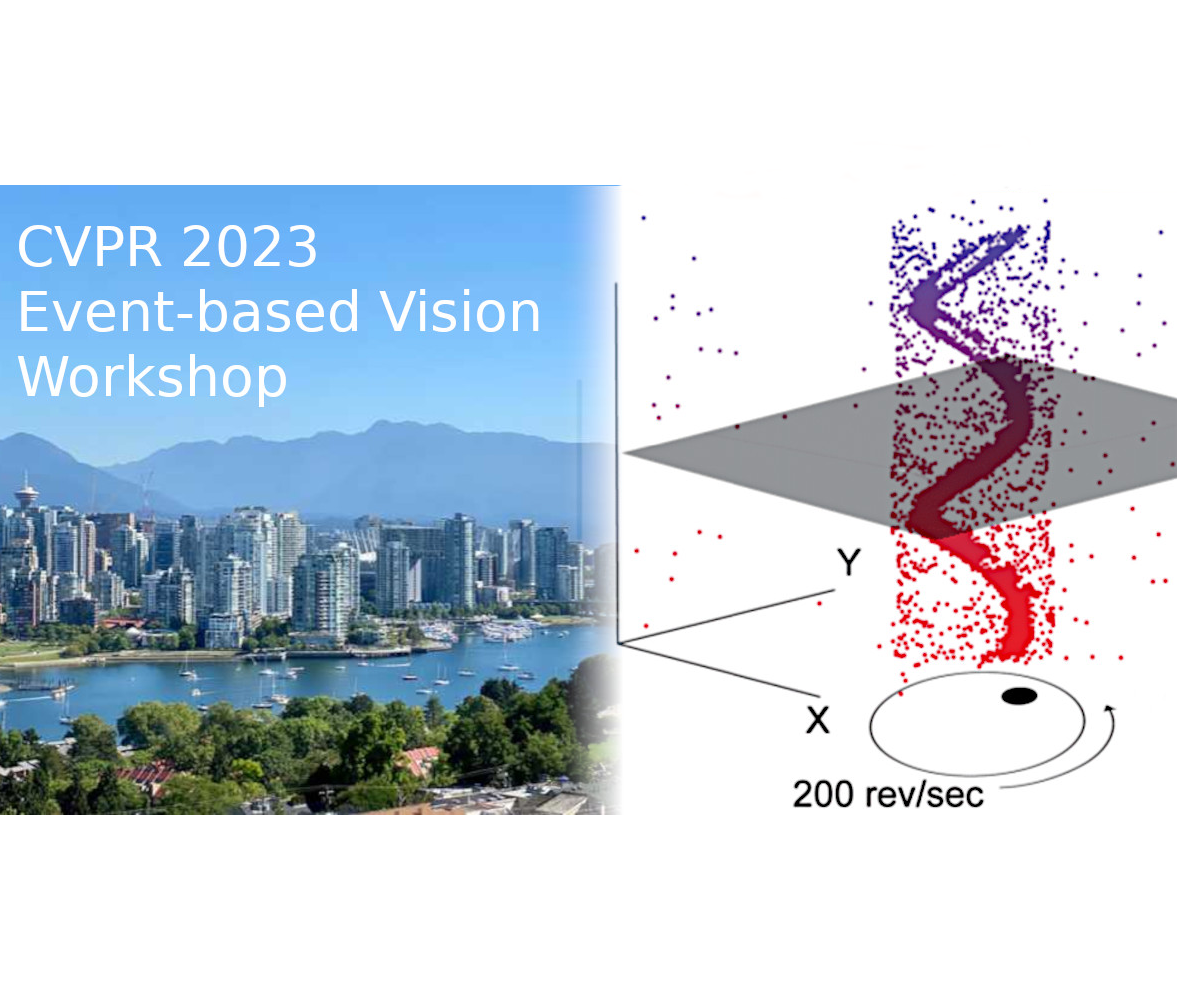Guillermo Gallego to co-organize a workshop on event-based vision at CVPR 2023 (Vancouver)
We are excited to announce that on 19 June, 2023, Science of Intelligence PI Guillermo will co-host a workshop about event-based vision at the IEEE Conference on Computer Vision and Pattern Recognition (CVPR) 2023. With an open call for papers and demos in related topics, as well as an invitation to hold presentations, this event provides visibility and networking opportunities to the work of scientists from this field.
The workshop focuses on event-based cameras, which can do things traditional cameras can’t. These cameras have the ability to capture objects in lightning-fast speed and with incredible detail, even in the dark. They are inspiring a new-generation technology, involving things such as robots that can fly like bees, or machines that can track a baseball in the moonlight. Companies are taking notice too, with big names like Sony, OmniVision, and Samsung working on their own versions of these cameras. The workshop will explore the exciting hardware behind these cameras and the smart algorithms that make them so powerful, opening up new possibilities in fields like robotics, gaming, and more. Submit your papers or presentation ideas by 20 March, 2023.
The workshop will take place in conjunction with the IEEE Conference on Computer Vision and Pattern Recognition (CVPR) in Vancouver, Canada, which is a leading conference in the field of computer vision. It’s where top researchers, innovators, and game-changers from academia, industry, and government come together to showcase their latest breakthroughs, exchange ideas, and push the boundaries of what’s possible. This annual conference covers everything from image and video analysis to object recognition, 3D computer vision, and beyond. CVPR is held annually and is an important platform for advancing the field and promoting collaboration among researchers and industry.
At SCIoI, Guillermo works in the fields of computer vision and robotics. His lab studies how robots can perceive and understand their surroundings, and works on making their perception systems more intelligent. The team uses methods inspired by the human visual system to help robots turn raw sensor data into useful knowledge, allowing them to work autonomously in changing environments.





